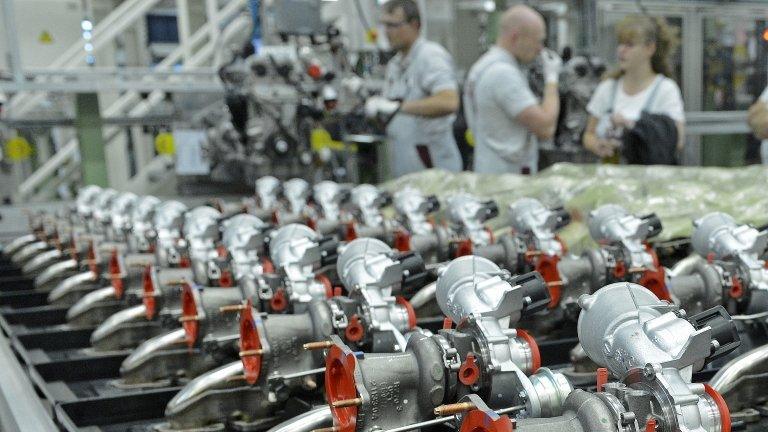Eurozone business activity at seven-month high, survey says
- Published

Service companies performed well in February, Markit said
Eurozone business activity has reached a seven-month high, prompting companies to take on more staff, a closely watched survey indicates.
Markit's composite flash purchasing managers' index for February hit 53.5, up from 52.6 in January.
Any figure over 50 indicates expansion, while anything under 50 points to a contraction.
Firms are hiring staff at the fastest rate since August 2011 to meet demand, the survey said.
Customer-facing service companies performed particularly well, Markit said, outpacing growth in manufacturing output.
At the same time, lower oil prices helped to reduce input costs to many businesses across Europe.
Growth ticked up in Europe's largest economies. Germany's services sector growth more than cancelled out a slowdown in manufacturing output growth.
France saw its first upturn in business activity since April last year, with growth at its fastest since August 2011.
However, the Markit data suggests that the eurozone is becoming increasingly reliant on service sector growth.
Europe is witnessing a "burgeoning recovery in service sector activity...in conjunction with a manufacturing sector that is essentially treading water," says RBC Capital Markets in a research note.
Turbulence in Greece has had little effect on overall eurozone output. "Undeterred by the ongoing Greek debt crisis, economic growth is gathering momentum and looks set to gain further traction in coming months," said Chris Williamson, chief economist at Markit.
- Published2 February 2015

- Published2 January 2015
